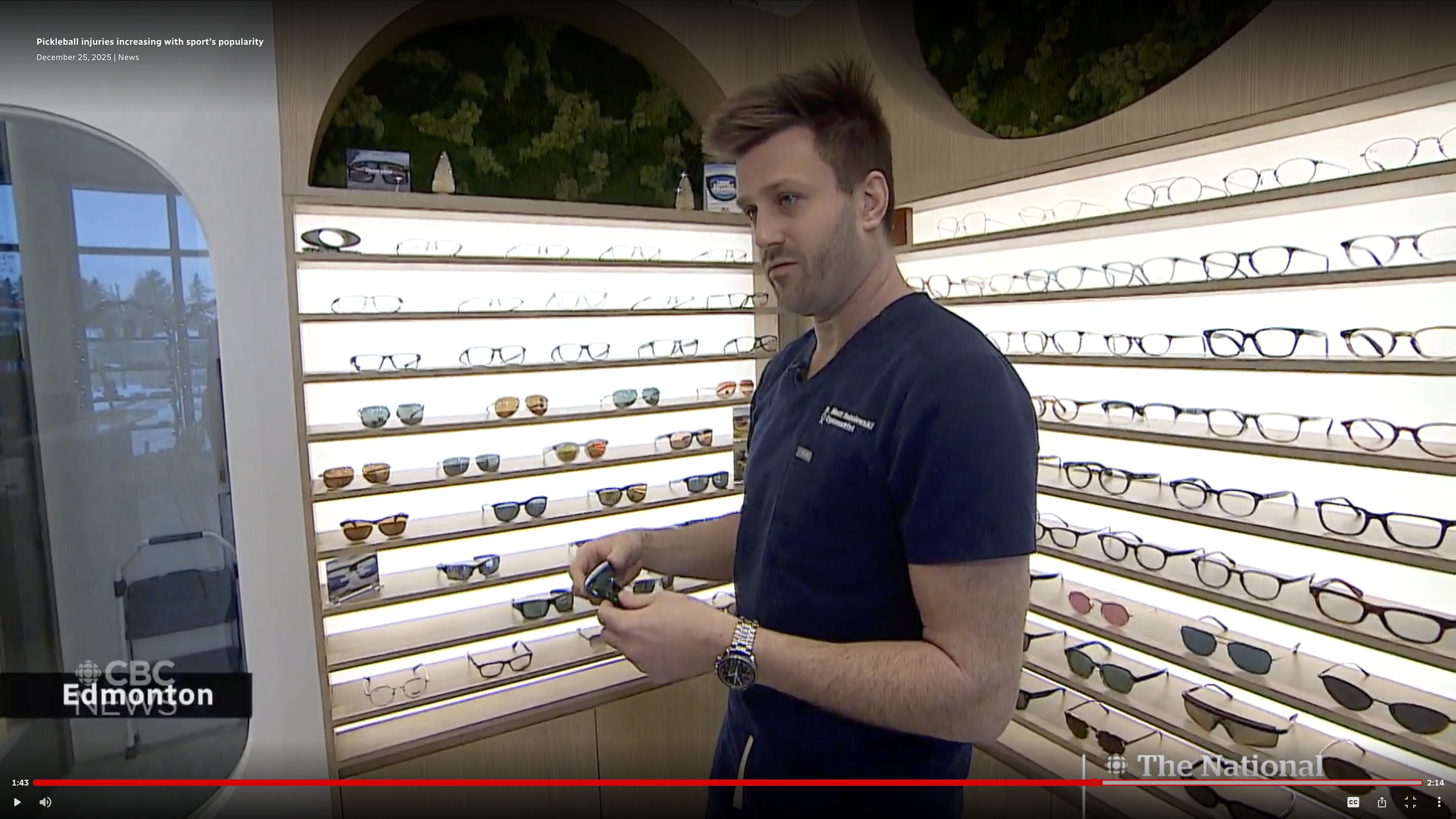10 Common Questions We Hear From Patients After Cataract Surgery in Edmonton
Cataract surgery has come a long way from being a simple lens replacement procedure. Today, patients in Edmonton not only regain clear vision but often have the option to upgrade to premium intraocular lenses (IOLs) designed to reduce or even eliminate the need for glasses after surgery. Whether it’s lenses that correct astigmatism, provide sharper distance vision, or offer a seamless transition between near, intermediate, and far focus, the choices available mean cataract surgery can double as a refractive upgrade.
With all these possibilities, it’s no surprise that patients have many questions about what happens after surgery. Recovery time, vision clarity, and activity restrictions are just some of the concerns we hear every day. Below, we’ve answered 10 of the most common post-surgery questions to help you feel prepared and confident about your recovery.
1. How much time do I need to take off work after surgery?
The amount of time you’ll need to take off depends heavily on the kind of work you do. Patients with office-based or light duties are often able to return within just a few days, especially when surgery is scheduled late in the week. For example, many of our patients have surgery on a Thursday and are comfortably back at work by Monday. If your job involves heavy lifting, dusty environments, or physically demanding work, your surgeon may recommend additional rest to protect your healing eyes.
2. How long will my eyes be blurry?
For many patients, vision is noticeably clearer within the first 24 hours after surgery. However, each eye heals differently, and some people may notice ongoing haziness or slight blurriness for several days to a week. This is a normal part of the healing process and usually improves with time. Your surgeon and optometrist will monitor your vision closely at follow-up visits to ensure everything is progressing as expected.
It's important to note that your vision should only continue to get clearer after cataract surgery. If you notice a sudden worsening in your vision over the few days, weeks or months, this is never normal and you should call your optometrist right away.
3. What do I need to do to take care of my eyes after surgery?
The first 24 hours after cataract surgery are especially important for your recovery. You’ll be asked to rest your eyes completely — no reading, TV, computers, or even checking your phone. Many patients find it easiest to nap, listen to audiobooks, or rest in a dark room during this time. You’ll also need to use prescription eye drops according to the schedule provided, which helps prevent infection and reduce inflammation.
4. Is there anything I can’t do after surgery?
While there are no long-term restrictions after cataract surgery, there are short-term limitations that protect your eyes during the healing process. For the first three weeks, activities such as swimming, contact sports, and certain strenuous exercises should be avoided. These activities can increase the risk of injury or infection while your eyes are still delicate. Once the initial healing period is over, you’ll be able to enjoy your regular routines without limitations.
5. How soon can I drive after surgery?
You cannot drive until you’ve been cleared by your optometrist at your post-operative checkup. For many patients, this happens as soon as the day after surgery, provided their vision is clear and safe for driving. However, in some cases it can take several days up to a week before it’s appropriate to get behind the wheel. Safety is the top priority, so always wait for your eye care provider’s approval before driving.
6. How long until I can wear make-up after surgery?
Eye make-up should be avoided for at least one week after cataract surgery. Mascara, eyeliner, and eyeshadow all carry the risk of introducing bacteria or particles near the surgical site. Even small amounts of irritation can delay healing or increase the risk of infection. After the first week, you can gradually return to your normal routine with make-up, provided your eye care team has cleared you to do so.
7. Can I use Latisse or eyelash extensions around the time of surgery?
We recommend avoiding Latisse in the days leading up to your surgery and for at least one week after. This helps reduce irritation and keeps your eyes as healthy as possible during the healing process. If you already have eyelash extensions, it’s best to leave them on, since the removal chemicals can be harsh and irritating. If you’d like to add new extensions, wait about three weeks after surgery once your eyelids and eyes have recovered.
8. How long until I can exercise after surgery?
Exercise is important for overall health, but it can put added stress on your eyes during the initial recovery. You’ll need to wait at least one week before resuming any activity that makes you sweat or causes you to strain. Sweat running into your eyes or the temptation to rub them can interfere with healing. Light walking is fine, but more vigorous activity should be postponed until you’ve been given the go-ahead by your optometrist.
9. Can I go to yoga after surgery?
Yoga is another activity that should wait until after the first week of recovery. Certain poses, especially inversions, can increase pressure in the eyes, which is not ideal while healing. Most patients can return to gentle yoga after they are cleared at their one-week follow-up visit. It’s always best to start slow and listen to your body as you ease back into your practice.
10. How long after surgery must I wait before airplane travel?
Unlike some procedures, cataract surgery does not restrict you from flying. Airplane travel is generally safe immediately after surgery, as cabin pressure does not affect the healing process. That said, it’s wise to carry your lubricating eye drops with you, since airplane cabins can be very dry and may irritate healing eyes. Always discuss your travel plans with your surgeon if you’ll be flying within the first week after surgery.
Bonus: When can I go back in the water?
Water carries a higher risk of infection during the healing process, so activities such as swimming, hot tubs, and saunas should be avoided for at least one month after surgery. Even in the shower, try not to let water run directly into your eyes. This precaution gives the surgical site time to fully seal and reduces the chance of bacteria entering the eye. After the first month, you can return to your normal water activities without concern.
Final Thoughts
Cataract surgery is not just about removing cloudy lenses — it’s also an opportunity to choose premium intraocular lenses that can transform how you see the world every day. The recovery process is straightforward for most people, but paying attention to your surgeon’s recommendations makes a big difference. By knowing what to expect and following the guidelines, you can enjoy clearer, more comfortable vision and get back to the activities you love.
If you’re considering cataract surgery in Edmonton or have questions about premium IOL options, our team at Helio Optometry is here to guide you every step of the way. Book your eye exam today.
Disclaimer: The content provided in this blog post by Helio Optometry eye care clinic in West Edmonton is intended solely for informational purposes and does not replace professional medical advice, diagnosis, or treatment by a Licensed Optometrist. No doctor/patient relationship is established through the use of this blog. The information and resources presented are not meant to endorse or recommend any particular medical treatment or guarantee and outcome. Readers must consult with their own healthcare provider regarding their health concerns. Helio Optometry and its optometrists do not assume any liability for the information contained herein nor for any errors or omissions. Use of the blog's content is at the user's own risk, and users are encouraged to make informed decisions about their health care based on consultations with qualified professionals.










